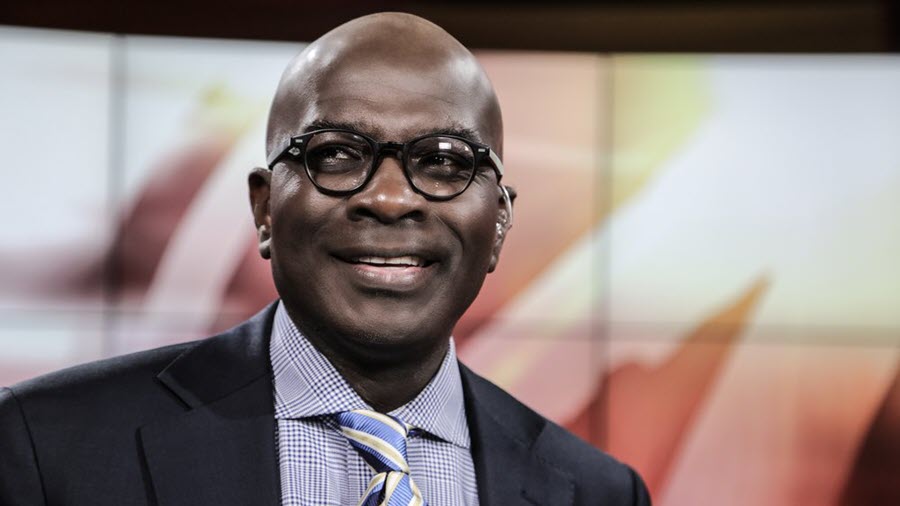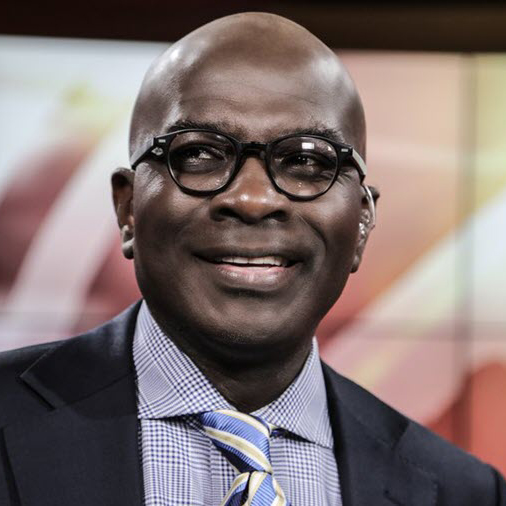Pay TV Titan AT&T Continues Scorched-Earth Ways

The smarter way to stay on top of broadcasting and cable industry. Sign up below
You are now subscribed
Your newsletter sign-up was successful
"Nonetheless, AT&T/DirecTV’s objective in filing its complaint against my stations is obvious: seek government intervention in private negotiations to divide and conquer small, secondary-market stations by forcing them to negotiate separately and lose their skillful private negotiator." -Armstrong Williams
In July, in an opinion piece for Broadcasting & Cable, I expressed my displeasure and befuddlement at AT&T/DirecTV discontinuing retransmission consent negotiations that had been under way for months with my Howard Stirk Holdings’ (HSH) stations. I thought AT&T/DirecTV was wrongfully (and selfishly) using its gatekeeping power against my free-to-the-home TV stations.
As one of the very few African-American TV owners in the country, I also thought AT&T/DirecTV was impacting diversity by truncating my market access, limiting viewer choices, and trenching upon cherished First Amendment values, which hold that more voices are better than fewer.
I urged AT&T/DirecTV to return to negotiations.
To my chagrin, the response I and several other similarly situated small-station operators who use a joint negotiating agent got was the filing of a complaint at the FCC by AT&T/DirecTV. The complaint did not claim that we had violated the FCC rule specifically governing joint negotiations. That rule (47 CFR § 76.65(b)(1)(viii)) prohibits only joint negotiations among independent broadcasters “in the same local market,” and none of the targeted stations share a market.
Moreover, many of the stations had used the same joint agent in successfully completing agreements with AT&T/DirecTV during the 2016 retransmission consent negotiations round. Instead, the focus of AT&T/DirecTV’s complaint is that we are not negotiating in “good faith” by having a joint agent.
AT&T/DirecTV’s complaint is a naked effort to achieve through an adjudicatory proceeding the type of blanket prohibition on joint retransmission negotiations that it has been unable to achieve through the FCC’s rulemaking process or its expensive, and extensive, lobbying efforts in Congress. Indeed, if AT&T/DirecTV truly believed that this group of small stations had violated their good faith obligation in renegotiating retransmission consent agreements, it would have brought its complaint following the exact same process in 2016.
The smarter way to stay on top of broadcasting and cable industry. Sign up below
It did not, and it should not have done so in 2019.
To be sure, the FCC has considered rulemaking proposals — including in 2011 and 2015 — that would have prohibited joint negotiations among broadcasters altogether. AT&T/DirecTV enthusiastically supported those proposals, but the FCC decided on a narrower approach and prohibited only joint negotiations among broadcasters in the same local market. Having failed twice to get its desired prohibition adopted by the FCC, AT&T/DirecTV cannot now reasonably argue that the prohibition exists nonetheless and using a joint negotiating agent violates the rule when it doesn’t.
In an effort to nevertheless claim that even if having a joint agent is not a per se violation of the rule, because AT&T/DirecTV also had a Non-Disclosure Agreement (NDA) in place with the joint negotiating agent in 2016, the “totality of the circumstances” establish a failure to negotiate in good faith.
Hogwash! The 2016 NDA was in place when AT&T/DirecTV and many of the same parties involved now successfully completed their retransmission consent negotiations. Clearly it was not an issue, then or now. In addition, throughout the 2019 negotiations, AT&T/DirecTV was engaged in active negotiations with the same joint agent without issue. It wasn’t until AT&T/DirecTV started to pull out of its negotiations that it even raised the 2016 NDA as an issue, and even after filing its complaint AT&T/DirecTV has continued to acknowledge and engage with the joint agent for the involved stations.
AT&T/DirecTV also made unsupported allegations against Sinclair Broadcast Group, the broadcaster the pay-TV industry loves to hate, suggesting it must be behind the failure to conclude successful retransmission consent negotiations this year. [Editor’s Note: Williams has joint sales and sales services agreements with Sinclair in Myrtle Beach and Flint, MI.] Perhaps unsurprisingly, it did not actually seek any relief or FCC action against Sinclair related to those allegations. Obviously, those allegations were simply designed to attract media attention for its complaint. In any event, the totality of the actual circumstances demonstrates that the stations involved in negotiating for retransmission consent with AT&T/DirecTV have acted in good faith throughout the entire course of the joint negotiations, both now and in 2016.
Nonetheless, AT&T/DirecTV’s objective in filing its complaint against my stations is obvious: seek government intervention in private negotiations to divide and conquer small, secondary-market stations by forcing them to negotiate separately and lose their skillful private negotiator. Even though AT&T/DirecTV is the largest MVPD in the country, it apparently believes that its negotiating position would be improved by an FCC order declaring joint retransmission negotiations off-limits for broadcast stations. But it is absurd on its face that AT&T/DirecTV needs the government’s help in private negotiations with my HSH stations and the eight other small station groups it has targeted.
Meanwhile, as reported by the NY Times on July 20, and Multichannel News July 5, in just the past six weeks, AT&T/DirecTV has leveraged its market power to force the blackout of 120 Nexstar stations in 97 markets and the loss of CBS programming for 6.5 million customers. This is apparently part of a broader strategy to isolate broadcasters and manufacture controversy while it continues to vigorously lobby Congress to renew STELAR and seek more favorable terms to the MVPD industry.
Neither the FCC or the public should condone AT&T/DirecTV’s bullying tactics, let alone allow it to dictate the outcome of marketplace negotiations by depriving a handful of small station groups of a critical tool in their retransmission consent negotiations with the nation’s largest MVPD, the right to continue using joint negotiating agents for stations in separate markets.
AT&T/DirecTV should instead focus on serving its customers and advancing the public interest, which means fairly negotiating and paying for the unique and popular programming local, free-to-the home television provides. I earnestly pray they will do so, and will return to the negotiating table in good faith.
AT&T responds:
We would like Mr. Williams to enable our customers to receive his ‘free’ over-the-air stations WEYI-NBC in Flint, MI and WWMB-CW in Myrtle Beach, SC the way they typically would in their lineups. The fact remains that Mr. Williams, through his joint negotiating agent, continues to insist upon exorbitant rate increases forallof the ‘free’ stations this agent represents elsewhere that far exceeds any actual value of Mr. Williams' stations within their own communities.
Customers today want far more value from their TV offerings, but Mr. Williams, through his agent, would demand unsustainably high fees just to allow these customers the convenience of receiving his ‘free’ over-the-air stations WEYI or WWMB in their usual program guide or without switching an input. Our goal is simple – to deliver the content our customers want at a value that also makes sense to them. We continue to seek that here, and welcome Mr. Williams' direct return to any negotiations.
Armstrong Williams is sole owner/manager of Howard Stirk Holdings I & II Broadcast Television Stations and the 2016 Multicultural Media Broadcast Owner of the year.
Armstrong Williams is a principal owner of the Baltimore Sun and manager/sole owner of Howard Stirk Holdings I & II Broadcast Television Stations.

